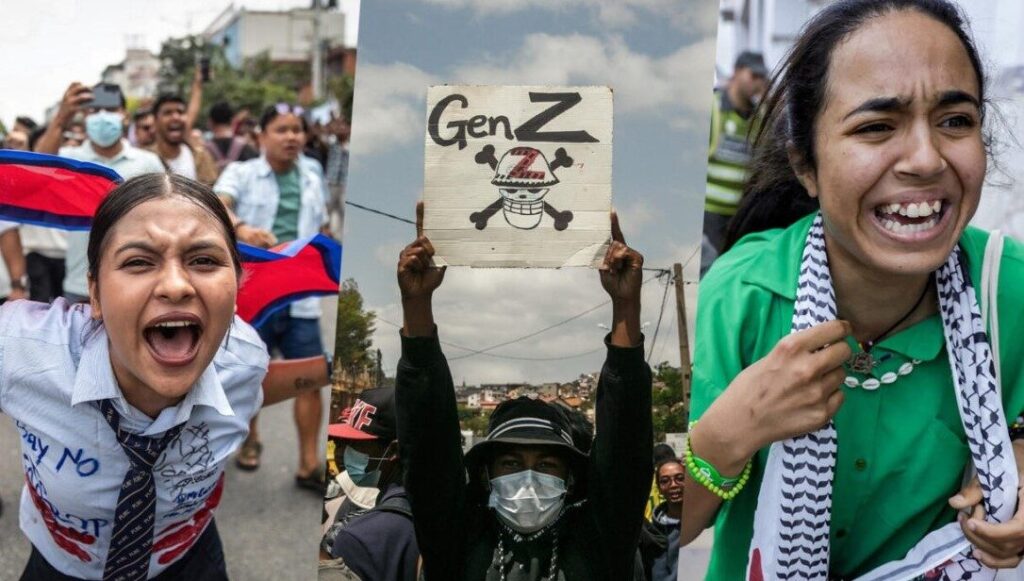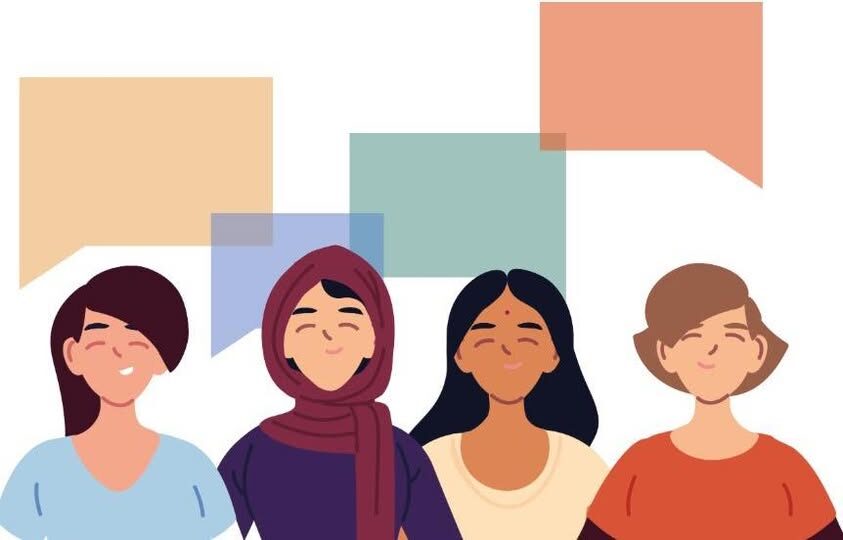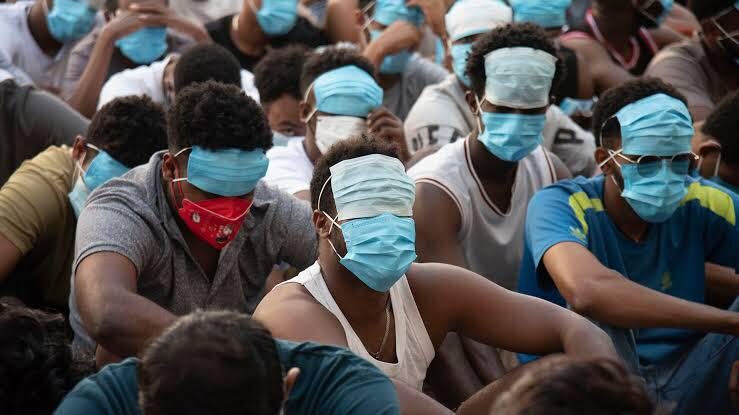Gen Z protests in Kenya, Madagascar and Morocco; Is Nigeria ripe for the same movement?
By: Amb. Joshua Fagbemi
Ed. 229|21.10.2025
In North Africa, Morocco has been at the centre of a potential pivotal change, largely driven by the Generation Z (people born between the mid-1990s and early 2010s). The past few years has seen heavy investment in sport, particularly football which has seen the country host regional and international footballing tournaments.
But within this lies an imbalance. While sport keeps raking in heavy funding, other essential parts of the country such as health care and education are bleeding. The protesters demanded significant improvements in job creation, bridging the social inequality and criticised the government spending on international sporting events like the 2030 FIFA World Cup, the 2025 Africa Cup of Nations and the 2025 U-17 Womens FIFA World Cup.
And as guessed, the protest which started on 27 September 2025 witnessed forceful attempts from the Moroccan government to discourage protesters. Three protesters were shot dead after a Royal Gendarmerie station was stormed in Lqliâa.
According to the Ministry of Interior, at least 409 protestors were arrested (most of whom were minors), 28 protestors were injured (including one in critical condition in Oujda), and 326 security forces were injured. Providing an additional report, it said material damage included 271 police cars, 175 private cars, and the vandalism of more than 80 public establishments and small private businesses.
The resilience and decision to demand change yielded results. Following days of protests, the Moroccan government increased spending on health and education by 16%, to approximately $15 billion, in the 2026 national budget.
Now, they’ve gained more confidence. The Gen Z are now back on the street, demanding for a total government reform.
The Moroccan scenario is another testament to the new age of protests, which should be peaceful. We’ve come to a time where youths lead the call for change, not only on social media but across streets. The wave is spreading and Gen Z are seeing themselves as a driver of the needed change in their society. And Africa is proof of that.
In the Southeastern part of the continent, Madagascar witnessed moments that will forever be remembered in their history.
Gen Z’s in Madagascar also made a clear call for total overhaul in government, which forced President Andry Rajoelina to at first dissolve the Senate and flee later on. For him, the same youth-led protest that favoured him in 2019 is now against him.
Young people started protesting on 25 September, first against water and power cuts, then demanding a complete reform of the political system; military police stopped them from reaching the square. The site has been a symbol of democracy and the focal point of anti-government protests on the Indian Ocean island since 40 student demonstrators were killed there by security forces in May 1972.
The military took over after the President fled to Dubai. Capsat’s commander, Col Michael Randrianirina, was sworn in as transitional president for what he said would be 18 to 24 months.
And in Kenya, the 2024 Gen Z protests against the Finance Bill.
Widely known as #RejectFinanceBill2024, the protest was a series of decentralized mass protests in Kenya against tax increases proposed by the Government of Kenya in the Finance Bill 2024. While the bill got suspended, the scenario soon turned into riot, as demonstrators demanded President Ruto’s resignation.
Do Nigeria need a Gen Z protest?
Young people in Africa have been increasingly vocal, calling for major reforms amid growing unrest. The continent has the world’s youngest population. Their method has been an active one – using social media platforms like X, TikTok, Instagram and Facebook as an awareness space.
In Nigeria, the 2020 #EndSARS protest brings a familiar memory. The chant for a police overhaul amid several displays of brutality on Nigerians was met by an accord of youths saying enough is enough. Meanwhile, the October 20 massacre at the Lekki toll gate leaves a scar. Potentially, this might be a possible avenue for another youth-led protest in Nigeria.
Is Nigeria ripe for a Gen Z protest?
Arguably, Nigeria is gradually shaping for a much expected protest that might be channeled towards a continued fight against police brutality, government reform or fight for a new Nigeria.
Nigeria has one of the largest youth populations (age 15 to 35) in the world, with estimates suggesting that 70% of the population is under 30, making youth the dominant demographic. Compared to 2020, social media has been more enlarged with the advent of artificial intelligence. Also, media awareness has improved with increased presence of youths online.
Nigeria Gen Z, who are much active on social media, are watching the plays in Morocco, Madagascar, Kenya and other African countries. They might be waiting for the click or lead that awakes their mood. And it only takes a viral hashtag on X to lead the chant for change.
Notably, protests are a show of rejection and desires. They are ways to force the shutdown of policies that work against citizens and introduce ones that bring a positive change. Nevertheless, protests are meant to be peaceful, and not resort to riot or getting hijacked.
Image Credit: France 24
———————————————-
Facebook: Peacepace Initiative
LinkedIn: Peacepace Initiative
X:@PeacepaceNG
Instagram: peacepace_initiative




Young people are expressing their frustrations because of unemployment, corruption, and exclusion from decision-making. To address these issues, there’s a need to:
– establish an independent investigative body to tackle corruption;
– include youth representatives in decision-making councils;
– launch youth employment and skills development programs;
– ensure transparency in budgeting and public projects.
Once these steps are taken, protests will no longer be necessary — we’ll stay united to build our nation in peace.
You are only point.
While the government has its part to play, citizens as well must stay dedicated to their duties towards peace keeping.